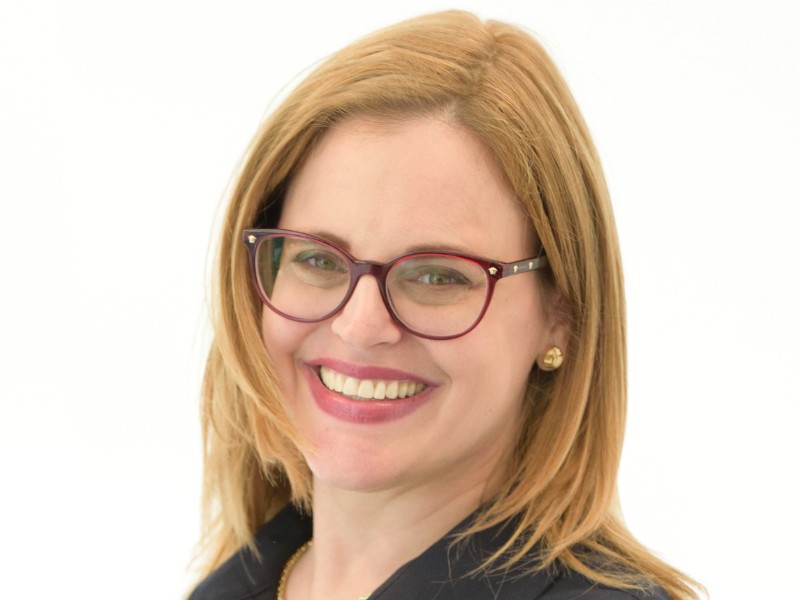Israel-based SodaStream has been a remarkable success story globally, but especially in Canada. Since 2010, SodaStream Canada has sold more than 1.8 million home carbonation machines, seven million gas cylinders and 9.5 million flavour mixes. The company’s Canadian subsidiary, the fourth-largest globally, has experienced double-digit annualized growth for the past 17 quarters.
Canadians replaced approximately 300 million single-use bottles with SodaStream sparkling water in 2019 alone. The company sells 40 per cent of all sparkling water in Canada, making it the No. 1 brand in the category.
Rena Nickerson is the general manager of SodaStream Canada. She is active in the Toronto Jewish community, having served on the executive boards of several communal institutions.
Why are Canadians so enamoured of SodaStream?
Because of the success of the business and the environmental impact it has. The more we sell, the more plastic waste we save. The sustainability side is always interesting to people. The business success in Canada is pretty remarkable, and it’s a great Israeli-Canadian success story as well.
We are still the No. 1 sparkling water brand in Canada, which is amazing. And we’re also No. 1 in all small domestic appliances. The carbonator that powers the machine – that actually bubbles the water – sells five times more in units than the next top-selling item. Every year, we keep growing.
What drives the growth?
I think we’re exactly what Canadians are looking for. They want to live healthier
lives and drink healthier beverages. Hydration is actually the top resolution people make when talking about health and wellness. They want to drink more water, and it’s easy to do that when you can make it any time you want at home, fresh. We know people are looking to help the environment, and this is a great way to do that for people who love sparkling water without a significant environmental impact. They don’t see those bottles piling up in their blue bin.
Every reusable SodaStream bottle replaces up to 2,000 disposable bottles. In 2019, we saved approximately 300 million bottles from being produced in the first place.
The other thing we did in 2019 is to reduce packaging. We used to sell most of our cylinders in boxes. We made a commitment to move as much as possible out of those boxes. We are now down to 92 per cent boxless. Only eight per cent of our cylinders are sold in boxes. That’s been in partnership with our retailers, who have enabled us to create other merchandising vehicles. As much as it sounds like a simple thing to reduce packaging, it actually touched almost everyone in the company.
A year ago, SodaStream opened a plant in Mississauga, Ont., to refill carbonators. How is it working out?
Since the fourth quarter of 2015, we’d had 17 consecutive quarters of strong double-digit growth, which is why we opened the plant. The plant was a sustainability enabler. We’re taking about 200,000 kilometres of truck traffic off the roads because we used to fill the carbonators in New Jersey, and now we do it locally. We’ve also more than tripled our staff. When I started, we were 14 employees, and now we’re about 50 in Canada, including office staff, plant staff and field sales.
The other thing that’s necessitated the plant is distribution growth. We’re now available in grocery stores, including Loblaws, and at Best Buy, where we didn’t used to be available. We now have machines at Costco. Canadian Tire has been a longtime partner with us, as have Walmart, Bed Bath & Beyond and Kitchen Stuff Plus. They have experienced growth with us, even as we’ve expanded distribution.
Talk about SodaStream’s hiring practices in Israel.
We’re proudly an Israeli company. On every machine that you buy, we have a little Israeli flag, and the copy under the flag says “Made in Israel. This product is produced by Arabs and Jews working side by side in peace and harmony.” When you look at the makeup of the plant, generally, it’s about half Jewish and half Muslim. And within the very diverse population, you have Jews from all around the world: Ethiopian Jews, Russian Jews, sabras, European Jews. Among the Muslims, we have Palestinians, Israeli Arabs and Bedouins.
The plant is called the Island of Peace. We treat everyone equally and fairly. That is just the right thing to do. And we’ve created an environment that’s magical, where people who would never have otherwise met become friends. I was there about a year ago and attended the opening of a synagogue on the campus of the plant, as well as four Muslim prayer rooms. It was unbelievable. A rabbi, an imam and the Bedouin mayor of Rahat all spoke and celebrated the openings of their religious facilities, but also that we could coexist and that everyone could start to understand each other a little bit better. When I spoke to some of the people who actually worked the line, I asked, “What’s it like to work at SodaStream?” And they just smiled and said, “We love it here because we’ve made friends with people we would never have otherwise met.” We pay a very fair wage, and of course, we don’t look at anyone’s religion, ethnicity, nationality when we pay them.
SodaStream was a longtime favourite target of the BDS (boycott, divestment and sanctions) campaign against Israel. Is it still?
Not much. I’ve seen fewer and fewer instances, and those that I see are just not that material to the business. It doesn’t spook us. Our retailers are very proud. They appreciate not just our growth, but that we’re an ethical company. They stand behind that. You’ll see a tweet now and then and it’ll get retweeted a few times, and then it’ll fizzle out. I think BDS activists are talking to themselves.
This interview has been edited and condensed for style and clarity
